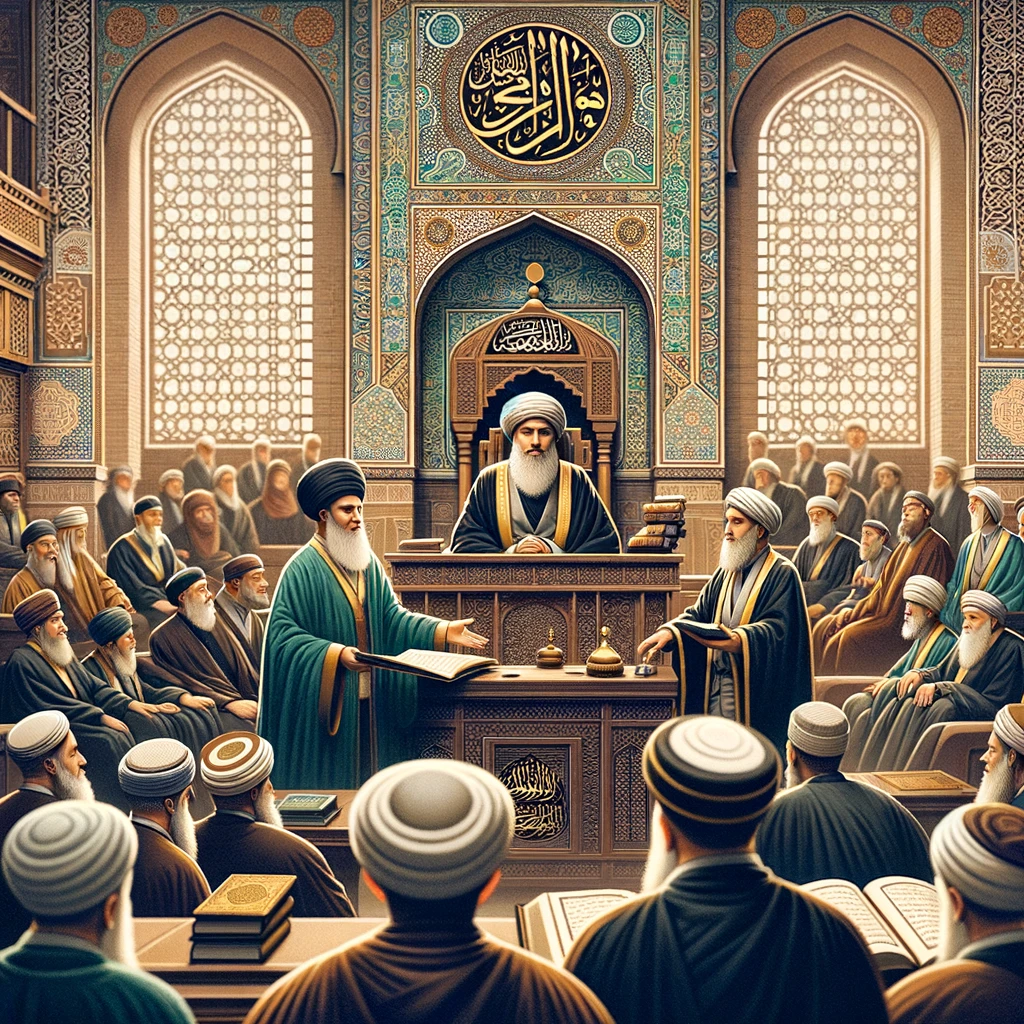OUR INSPIRATION
The Deep-Rooted Tradition of Accountability in Islam

From the dawning of Islamic history, when Allah (Subhana Wata’ Ala) conferred prophethood upon Hazrat Muhammad (PBUH), the core tenet of Ehtisab (Accountability) was etched into the hearts of its followers. The second Caliph, Hazrat Omar (RA), further institutionalized this concept, creating a legacy that began with the Qadi-al-Qadat, evolved into the Diwan-al-Mazalim, and eventually culminated in the Turkish Mohtasib system.
The Mohtasib: Guardian of Justice

Ensuring justice and fairness, the Mohtasib, a distinguished public figure appointed by the reigning Caliph or monarch, was tasked with overseeing public officials’ accountability. They operated autonomously but always within a clear framework. By the Abbasids era (750-847), the inception of complaint-handling agencies like ‘Diwan-al-Mazalim’ marked a significant evolution. These agencies, helmed by senior judges, addressed public grievances against government officials.
Modern-day Evolution: The Ombudsman
The inception of the modern-day Ombudsman has its roots in the early 19th century. Sweden was the first nation to officially introduce the Ombudsman system in 1809. The term ‘Ombudsman’ itself is Swedish and translates to “agent” or “representative.” Initially, the Swedish Parliamentary Ombudsman was instituted to ensure that public officials adhered to the law. This was particularly significant as Sweden transitioned from an absolute monarchy to a constitutional monarchy.
The success of this model in Sweden drew international attention. Neighboring Nordic countries began adopting similar systems. However, it was in the 20th century, particularly post World War II, that the Ombudsman model began seeing widespread adoption beyond the Nordic region. Countries saw the value in having an independent body that could ensure transparency, fairness, and protect the rights of individuals against possible administrative injustices.
From its Swedish origins, the Ombudsman model has been tailored to suit various administrative cultures and legal systems across the world. Whether it’s the “Public Defender” in Georgia or the “Human Rights Defender” in Poland, the essence remains consistent: an independent entity ensuring administrative accountability and protection of citizens’ rights.
The system’s success is evident in its wide-ranging global adoption, from Europe to Asia, Africa, and the Americas. Its adaptability and core principles of justice and accountability make it a crucial institution in both democracies and countries transitioning towards democratic systems.
THE BIRTH OF OIC OMBUDSMAN ASSOCIATION
Recognizing the historical significance of the Ombudsman institution, the Organization of Islamic Cooperation (OIC) sought to fortify its presence across member states. In a pivotal 2012 session in Djibouti, the OIC resolved to establish a network of Ombudsman Offices. This visionary step aimed to boost expertise exchange, hone complaint handling skills, and further empower Ombudsman institutions in the Islamic world.
By 2014, the collective resolve had crystallized. A historic conference in Islamabad became the birthplace of the “OIC Ombudsman Association (OICOA)”, established with its headquarters in Islamabad. This pivotal moment marked the official institutionalization of the Ombudsman’s role, a move further cemented with Pakistan securing the perpetual role of the Secretary General of OICOA. By 2019, the association had moved from conceptual phases to operational strides, underscoring the unified commitment of OIC member nations to the initiative.
OUR MISSION
Adoption and Promotion of the Islamic Concept of Ehtisaab (Accountability)
The mission statement of the Organization of Islamic Cooperation and Accountability (OICOA) underscores its dedication to upholding and advancing pivotal principles that aim to establish a just, harmonious, and peaceful society. These principles are firmly rooted in both Islamic teachings and universally recognized standards of human rights and governance.
The core principle is ‘Ehtisab’, which serves as the Islamic tenet of moral and fiscal accountability. By championing Ehtisab, OICOA commits to endorsing a transparent administration marked by actions carried out with a deep sense of responsibility and answerability. This not only bolsters the moral integrity of governing processes but also engenders societal trust and harmony.
Promotion and Defense of Human Rights, Administrative Justice, and Social Peace
OICOA’s mission is a staunch commitment to defending and promoting human rights, ensuring administrative justice, and fostering social peace through deploying equitable administration within governmental and organizational contexts, underpinned by procedural fairness and accountability. In making these commitments, the OICOA aspires to cultivate a harmonious society where individuals live in peace, with their inherent rights zealously protected and upheld. By committing to both national and international human rights laws, the OICOA solidifies its position as an organization deeply aligned with globally recognized principles of human rights.
Fostering International Cooperation
OICOA is dedicated to strengthening international cooperation, demonstrating its willingness to align with global organizations and combine a variety of perspectives and resources. Collaborating on an international level not only promotes the exchange of knowledge and best practices, but also greatly improves the effectiveness of OICOA’s initiatives. Ultimately, OICOA’s goal is to create a society that prioritizes accountability and human right with global collaborative efforts, all of which are firmly cemented in the esteemed Islamic principle of Ehtisaab.



